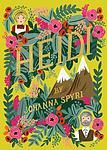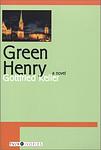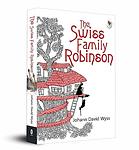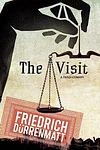The Greatest Brazilian, Swiss Books of All Time
Click to learn how this list is calculated.
This list represents a comprehensive and trusted collection of the greatest books. Developed through a specialized algorithm, it brings together 300 'best of' book lists to form a definitive guide to the world's most acclaimed books. For those interested in how these books are chosen, additional details can be found on the rankings page.
Genres
Countries
Date Range
Reading Statistics
Click the button below to see how many of these books you've read!
Download
If you're interested in downloading this list as a CSV file for use in a spreadsheet application, you can easily do so by clicking the button below. Please note that to ensure a manageable file size and faster download, the CSV will include details for only the first 500 books.
Download-
1. The Alchemist by Paulo Coelho
A young Andalusian shepherd named Santiago dreams of finding a worldly treasure and sets off on a journey across the Egyptian desert in search of it. Along the way, he encounters a series of characters who impart wisdom and help guide his spiritual journey. The novel explores themes of destiny, personal legend, and the interconnectedness of all things in the universe. The boy learns that true wealth comes not from material possessions, but from self-discovery and attaining one's "Personal Legend".
-
2. The Hour of the Star by Clarice Lispector
"The Hour of the Star" is a poignant narrative that explores the life of Macabéa, a poor, unattractive, and naive typist living in the slums of Rio de Janeiro. The story is narrated by Rodrigo S.M., a sophisticated writer who struggles with how to accurately portray Macabéa's simple existence and her tragic fate. The novel delves into themes of identity, poverty, and the human condition, presenting a stark contrast between the lives of the rich and the poor, the educated and the ignorant, and the beautiful and the plain.
-
3. The Devil to Pay in the Backlands by Joao Guimaraes Rosa
"The Devil to Pay in the Backlands" is a complex narrative that follows the life of a Brazilian sertanejo (backlands dweller) who becomes a bandit and a feared killer. Tormented by his violent actions, he embarks on a metaphysical journey, wrestling with philosophical and religious questions, and trying to reconcile his deep belief in fate and predestination with his own free will. The book is notable for its innovative language, blending regional dialects with neologisms and classical references, which adds to its rich portrayal of the Brazilian backlands.
-
4. The Posthumous Memoirs of Bras Cubas by Machado de Assis
The novel is a unique and satirical work, narrated by a dead man, Bras Cubas, who recounts his life from beyond the grave. The story is filled with ironic humor and philosophical musings as Bras Cubas explores his past, his relationships, and the societal norms of his time. The narrative breaks conventional storytelling norms, often addressing the reader directly and jumping through time without warning. Themes of love, wealth, power, and the human condition are explored, providing a critique of 19th-century Brazilian society.
-
5. I'm Not Stiller by Max Frisch
The book is a profound exploration of identity and the human condition, revolving around a man who is arrested upon his return to his home country, Switzerland, after spending time in America. Although he insists he is not the man, Stiller, that everyone believes him to be, his protests are ignored. The story unfolds as he writes in his prison cell, reflecting on his past life and relationships, and grappling with the question of who he truly is. It's a thought-provoking narrative that challenges conventional notions of selfhood and personal identity.
-
6. Dom Casmurro by Machado de Assis
The novel is a darkly comic, yet tragic exploration of love, betrayal, and jealousy, told through the unreliable narration of the protagonist, a middle-aged man who believes his wife has cheated on him with his best friend. The narrative is filled with ambiguity and uncertainty, forcing readers to question the reality of the events described. The novel is also a profound exploration of the human psyche and the destructive power of obsession.
-
7. Jakob Von Gunten by Robert Walser
This novel is a first-person account of a young man who leaves his privileged life to enroll at a school for servants in Berlin. The protagonist's observations and experiences in the school, his interactions with the headmaster and other students, and his internal struggles and reflections form the crux of the story. The narrative, imbued with irony and dark humor, explores themes of power, submission, individuality, and the absurdity of societal norms and expectations.
-
8. Heidi by Johanna Spyri
"Heidi" is a heartwarming tale about a young orphan girl named Heidi who is sent to live with her grumpy grandfather in the Swiss Alps. Despite the initial challenges she faces, Heidi's pure and joyful spirit brings warmth and happiness to the people around her. Through her adventures and friendships, Heidi learns important lessons about love, resilience, and the beauty of nature.
-
9. Green Henry by Gottfried Keller
"Green Henry" is a semi-autobiographical novel that chronicles the life of a young man who dreams of becoming a painter but faces countless obstacles on his journey. The protagonist leaves his Swiss village and travels to Munich to study art, but his lack of discipline and financial difficulties force him to return home. After his mother's death, he begins to reassess his life and eventually finds his place in society. The novel explores themes of identity, ambition, and the struggle between individual desires and societal expectations.
-
10. The Passion According to G.H. by Clarice Lispector
"The Passion According to G.H." is a philosophical novel that delves into the existential crisis of a wealthy Brazilian woman who, after killing a cockroach in her maid's room, experiences a profound metaphysical crisis. The narrative unfolds as a stream of consciousness that explores themes of identity, existence, and the nature of reality. The protagonist's journey forces her to confront her own humanity, the concept of nothingness, and the chaotic, interconnected nature of life. It's a profound and introspective exploration of the human condition and the meaning of existence.
-
11. Memories, Dreams, Reflections by Carl Jung
This book is an autobiography of a renowned psychologist who shares his life experiences, insights, and the development of his theories. The narrative delves into his childhood, his career, his relationship with Sigmund Freud, and his exploration into the human psyche. It also provides an in-depth look at the author's dreams and visions, which greatly influenced his work, and his thoughts on subjects such as life after death, reincarnation, and the collective unconscious.
-
12. Belle du Seigneur by Albert Cohen
"Belle du Seigneur" is a tragic love story set in the 1930s, revolving around a high-ranking Jewish official who works for the League of Nations and his passionate affair with a married Swiss aristocrat. The narrative delves deep into their intense relationship, exploring themes of obsession, self-destruction, and existential despair, all set against the backdrop of the impending Second World War. The novel is also notable for its satirical portrayal of diplomatic life and its exploration of Jewish identity.
-
13. Adolphe by Benjamin Constant
"Adolphe" is a semi-autobiographical novel that tells the story of a young man, Adolphe, who falls in love with an older woman, Ellénore. The novel explores the complexities and consequences of their illicit love affair, as Adolphe struggles with his feelings and societal expectations. The story delves into themes of love, power, freedom, and the individual versus society, offering a profound psychological and moral insight into human nature.
-
14. Homo Faber by Max Frisch
"Homo Faber" is a novel about a man named Walter Faber, a highly rational and logical Swiss engineer who believes strongly in technology and progress. His life is turned upside down when he survives a plane crash in the Mexican desert, falls in love with a young woman who turns out to be his daughter, and then loses her to a tragic death. This series of events forces him to question his faith in technology and confront the irrationality of life.
-
15. Rebellion In The Backlands by Euclides da Cunha
This book offers a detailed and vivid account of the War of Canudos, a significant peasant revolt that took place in the late 19th century in the Brazilian backlands. Through a blend of historical documentation and narrative, the text explores the socio-political conditions that led to the uprising, the charismatic leadership of Antônio Conselheiro, and the brutal suppression of the rebellion by the Brazilian government. The author delves into the geography, culture, and lives of the backland inhabitants, providing a deep analysis of the conflict as a reflection of the broader struggles within Brazilian society. This work is not only a historical account but also a profound commentary on the themes of civilization versus barbarism, social injustice, and the complexities of national identity.
-
16. Macunaíma by Mario de Andrade
This book is a hallmark of Brazilian literature, blending folklore, social critique, and surrealism to narrate the adventures of its eponymous hero, a shapeshifting character of indigenous origin who embarks on a journey from the Amazon rainforest to the city of São Paulo. Throughout his quest to retrieve a magical amulet stolen by a fearsome giant, the protagonist encounters a myriad of mythical creatures, gods, and figures from Brazilian folklore, all while satirizing the cultural and social issues of early 20th-century Brazil. The narrative is celebrated for its inventive language, playful use of Brazilian vernacular, and its pivotal role in the Brazilian Modernist movement, offering a unique exploration of national identity, racial diversity, and the complex relationship between tradition and modernity.
-
17. Veronika Decides to Die by Paulo Coelho
The novel centers around Veronika, a young woman from Slovenia who, disillusioned by her life and the world, decides to commit suicide. Surviving her attempt, she wakes up in a mental institution where she learns that her failed attempt has left her with only a few days to live. During her stay, she meets a variety of characters, each with their own mental issues, who help her to see her life in a new perspective. The story explores themes of madness, individuality, and the value of life, challenging societal norms and questioning the meaning of sanity.
-
18. On Death and Dying by Elisabeth Kübler-Ross
This groundbreaking book explores the five stages of grief experienced by terminally ill patients. The author, a Swiss-American psychiatrist, introduces the concept of the five stages: denial, anger, bargaining, depression, and acceptance, which has since been universally recognized and applied in various fields. The book is based on the author's series of interviews with dying patients, providing an empathetic and insightful look into the emotional and psychological experiences of those facing death.
-
19. Moravagine by Blaise Cendrars
The novel follows the adventures of an eccentric, violent, and mentally unstable protagonist who is released from an asylum by his psychiatrist. The pair embark on a chaotic journey across Europe and America, encountering a variety of strange and often dangerous situations. The narrative explores themes of insanity, violence, and the human condition, offering a dark and surreal critique of modern society.
-
20. Swiss Family Robinson by Johann David Wyss
This classic novel follows the adventures of a Swiss family who are shipwrecked on a deserted tropical island. Through ingenuity, hard work, and family cooperation, they overcome the challenges of isolation and the dangers of an unknown environment. The story showcases their efforts to build a new life for themselves, exploring and adapting to their surroundings, discovering new plants and animals, and creating a home filled with love and learning. It is a tale of survival, resourcefulness, and the strength of the human spirit in the face of adversity.
-
21. The Pledge by Friedrich Dürrenmatt
This book is a gripping crime story that delves into the complexities of human nature and the limitations of the justice system. It follows the journey of a retired police detective who becomes obsessed with solving the murder of a young girl, promising the victim's parents to find the perpetrator. As he delves deeper into the investigation, his methods become increasingly unconventional, straying from standard police procedure and relying instead on a meticulously crafted plan to catch the killer. The narrative challenges the conventional detective story format, exploring themes of obsession, the unpredictability of life, and the moral ambiguities of justice, ultimately questioning whether the ends justify the means in the pursuit of truth.
-
22. Man in the Holocene by Max Frisch
The book is a narrative about an elderly man who, isolated in his home during a rainstorm in the Swiss Alps, reflects on his life, mortality, and the human condition. The protagonist spends his time reading encyclopedic entries and clipping them to his wall, creating a mosaic of human knowledge and history. The narrative is interspersed with these entries, presenting a blend of fiction and non-fiction, and exploring themes of memory, time, and the fleeting nature of human existence.
-
23. The Black Spider by Jeremias Gotthelf
"The Black Spider" is a chilling and haunting tale set in a small Swiss village. It tells the story of a pact made with the devil by the villagers' ancestors, resulting in a curse that manifests in the form of a black spider. As the spider spreads terror and death, the villagers must confront their own sins and grapple with the consequences of their forefathers' actions. This dark and atmospheric novella explores themes of guilt, redemption, and the destructive power of evil.
-
24. Gabriela, Clove and Cinnamon by Jorge Amado
Set in the 1920s in the Brazilian town of Ilhéus, the novel tells the story of a beautiful and charismatic migrant worker, Gabriela, who becomes a cook in the home of a wealthy bar owner. As the town, historically dominated by a few wealthy cacao planters, undergoes economic and social changes, Gabriela and her employer fall in love. Their relationship, however, is challenged by their different social statuses, the town's traditional values, and the employer's political ambitions. The story is a vivid portrayal of Brazilian culture, exploring themes of race, gender, class, and tradition versus progress.
-
25. The Judge and His Hangman by Friedrich Dürrenmatt
This book is a crime novel set in Switzerland, where a police lieutenant is tasked with solving the murder of his former colleague. The narrative explores themes of justice, revenge, and the blurred lines between good and evil. The lieutenant, despite being terminally ill, is determined to solve the case and in the process, he uncovers a web of corruption and deceit that forces him to question his own morality and the nature of justice. The story is a philosophical examination of the criminal justice system and the moral dilemmas faced by those who enforce the law.
Reading Statistics
Click the button below to see how many of these books you've read!
Download
If you're interested in downloading this list as a CSV file for use in a spreadsheet application, you can easily do so by clicking the button below. Please note that to ensure a manageable file size and faster download, the CSV will include details for only the first 500 books.
Download























